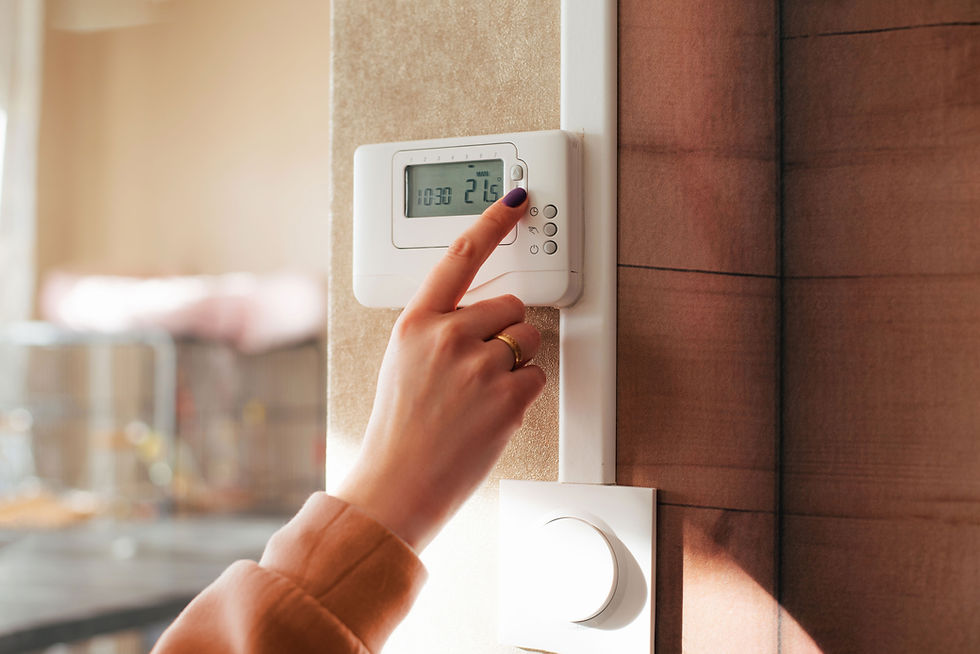How to Supercharge Your Sleep Hygiene for Unmatched Restful Nights
- Alpharize

- Jun 20, 2025
- 4 min read

Have you ever wondered what truly makes a night of sleep exceptional? Sleep hygiene is key to waking up refreshed and energized every morning. In our busy lives, developing a solid sleep hygiene routine is crucial for improving sleep quality. This post will provide practical strategies to enhance your sleep hygiene, helping you turn your nights into restorative journeys.
Understanding Sleep Hygiene
Sleep hygiene includes habits and practices that help you achieve better sleep regularly. It spans your sleeping environment and daily routines. By actively managing sleep hygiene, you can significantly improve the quality of your sleep.
Maintaining good sleep hygiene isn’t a one-time effort. It is an ongoing practice that can lead to long-lasting health benefits. Poor sleep hygiene can contribute to insomnia, fatigue, and decreased focus during the day. Let’s explore the essentials!
Create a Sleep-Inducing Environment
Keep It Dark
The first step in improving your sleep hygiene is to create an environment conducive to sleep. Keep your bedroom dark, cool, and quiet. Darkness tells your brain to produce melatonin, the hormone that regulates sleep.
To enhance darkness, use blackout curtains or an eye mask. Remove any disruptive light sources, such as streetlights and electronic screens, that can interfere with your sleep.
Control the Temperature
The best bedroom temperature for sleep is between 15-19 degrees Celsius. If it is too hot or too cold, your sleep cycle can be disrupted, causing you to toss and turn.
Use air conditioning, fans, or heaters to maintain a comfortable environment. Choose bedding and pajamas made from breathable materials to further enhance comfort.

Minimize Noise
Noise can be a significant barrier to restful sleep. Consider wearing earplugs or using a white noise machine to drown out disruptive sounds. Soft background sounds like rain or ocean waves can help mask sudden noises, creating a more serene atmosphere.
By optimizing your bedroom for darkness, appropriate temperature, and reduced noise, you create the perfect setting for a restful night.
Establish a Consistent Sleep Schedule
Set a Regular Sleep and Wake Time
One of the easiest and most effective ways to improve sleep hygiene is to maintain a consistent sleep schedule. Go to bed and wake up at the same time daily to regulate your body’s internal clock. This makes it easier to fall asleep and wake up naturally.
Aim for 7-9 hours of sleep per night, which most adults require. Sticking to a regular routine can lead to restorative sleep and fewer disruptions over time.
Wind Down Before Bed
Engage in calming activities each evening to prepare your mind and body for sleep. Options include reading, taking a warm bath, or practicing deep breathing exercises. Avoid screens at least an hour before bed. The blue light from phones and computers can delay melatonin production, making it harder to fall asleep.
Establishing a pre-sleep routine signals to your body that it's time to wind down and prepare for restful slumber.

Be Mindful of Diet and Exercise
Eating Habits Matter
Pay attention to what you eat, especially in the hours leading up to bedtime. Heavy meals can disrupt sleep, so try to have your last meal at least 2-3 hours before you go to bed.
Be cautious with caffeine and alcohol. Caffeine can linger in your body longer than expected, affecting your sleep. Alcohol might make you drowsy initially but can interrupt sleep later on. According to a study, 30% of people report poor sleep due to late-night eating or drinking.
Exercise Regularly
Incorporating physical activity into your routine can markedly improve sleep quality. While exercise is beneficial, avoid vigorous workouts close to bedtime. Aim for morning or afternoon sessions.
Even a simple evening walk can help calm your mind and tire your body, making it easier to fall asleep.
Manage Stress and Anxiety
Practice Relaxation Techniques
Stress can prevent a good night’s sleep, leading to racing thoughts and tension. Implementing relaxation techniques can help clear your mind before bedtime.
Consider meditation, yoga, or deep breathing exercises to ease stress levels. Journaling your thoughts can also be a productive way to prepare for sleep; put concerns on paper to help clear your mind.

Limit Screen Time
Getting caught up in scrolling on your phone or binge-watching shows can be stressful. Set technology-free times or zones, like when you’re in bed. Instead of screens, try reading a calming book or listening to soothing music before sleep.
Evaluate Your Sleep Necessities
Invest in Quality Bedding
Your mattress and pillows significantly influence your sleep quality. If you often wake up sore or unrested, it might be time to assess your bedding. Choose a mattress that balances comfort and support based on your sleeping style.
Select a pillow that properly aligns your neck to prevent discomfort. Research shows that 61% of people feel they sleep better on a quality mattress.
Embrace Natural Light Exposure
Daytime Brightness is Key
Maximize exposure to natural light during the day, particularly in the morning. This helps regulate your circadian rhythm. Bright sunlight in the morning can boost alertness and improve mood, laying the groundwork for better sleep at night.
Make it a habit to spend time outdoors or by windows throughout the day for optimal benefits.
Closing Thoughts
Supercharging your sleep hygiene isn’t just about hitting the pillow; it involves a thoughtful approach to various aspects of daily life. From creating a sleep-friendly environment to reconsidering your diet and exercise habits, these strategies come together to promote restful nights.
Prioritizing these practices will unlock the secrets to restorative sleep, allowing you to wake each day refreshed and energized. Take the time to evaluate your sleep hygiene today; your body and mind will appreciate it!




Comments